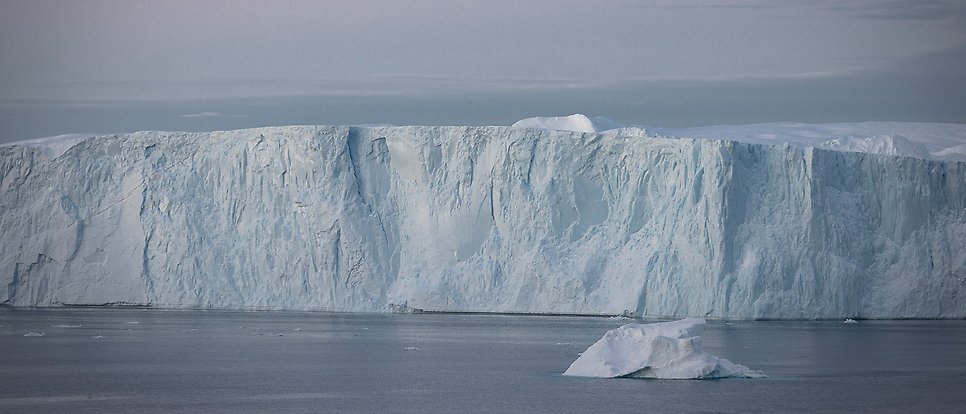Researchers warn of catastrophic climate change

A tipping point would for example be the collapse of the inland ice sheet on Greenland due to global warming. Photo: Getty Images
The new Global Tipping Points Report presents the most comprehensive evaluation yet of climate thresholds. The conclusion is that the Earth is on a dangerous course. The report was presented on 6 December during the COP 28 climate summit in Dubai.
A tipping point occurs when a small change leads to a rapid and irrevocable change. One example would be the collapse of the inland ice sheet on Greenland due to global warming. This would lead to far-reaching changes in sea levels and the climate. Once we have crossed that threshold, the inland ice will never recover even if against all the odds global warming were suddenly to stop and temperatures returned to pre-industrial levels.
Based on an assessment of 26 tipping points of the Earth system, the report draws the conclusion that business as usual, in other words, ignoring everything, is a dangerous way to go. Current global climate measures are inadequate to avoid reaching dangerous tipping points.
Collapse of major inland ice sheets
With global warming now on its way towards passing 1.5°C, at least five tipping points of the Earth system are likely to be triggered unless we act fast. They include the collapse of major inland ice sheets and widespread death of tropical coral reefs.
As more of the Earth system’s tipping points come ever closer, the risks to the food supply increase as well as the risks of far-reaching climate and ecological crises.

"the precautionary principle indicates we should act quickly to minimise further changes in the Earth system,” says Professor of Meteorology Gabriele Messori, Uppsala University. Photo: Mikael Wallerstedt
The report contains both a physical evaluation of tipping points and concrete suggestions for coordinated political measures that can steer the Earth towards a safer future, focusing on key sectors such as energy, transport and food supply.
Danger to humanity
The report has been produced by an international research team coordinated by the University of Exeter, in cooperation with the Bezos Earth Fund.
“Tipping points in the climate system and the ecological systems potentially pose a great danger to humanity. It is difficult to determine exactly when a tipping point will occur and the precautionary principle indicates we should act quickly to minimise further changes in the Earth system,” says Professor of Meteorology Gabriele Messori, Uppsala University, one of the researchers who has contributed to the report.
Kelly Levin, Chief of Science, Data and Systems Change at the Bezos Earth Fund, adds:
“Climate change is the decisive issue of our time. It is important that we develop the science around global tipping points to be able both to tackle the threats and grasp the opportunities that lie ahead.”
Malin Eivergård
Publication
Parts of the Global Tipping Points Report will be published in a special issue of the journal Earth System Dynamics.
